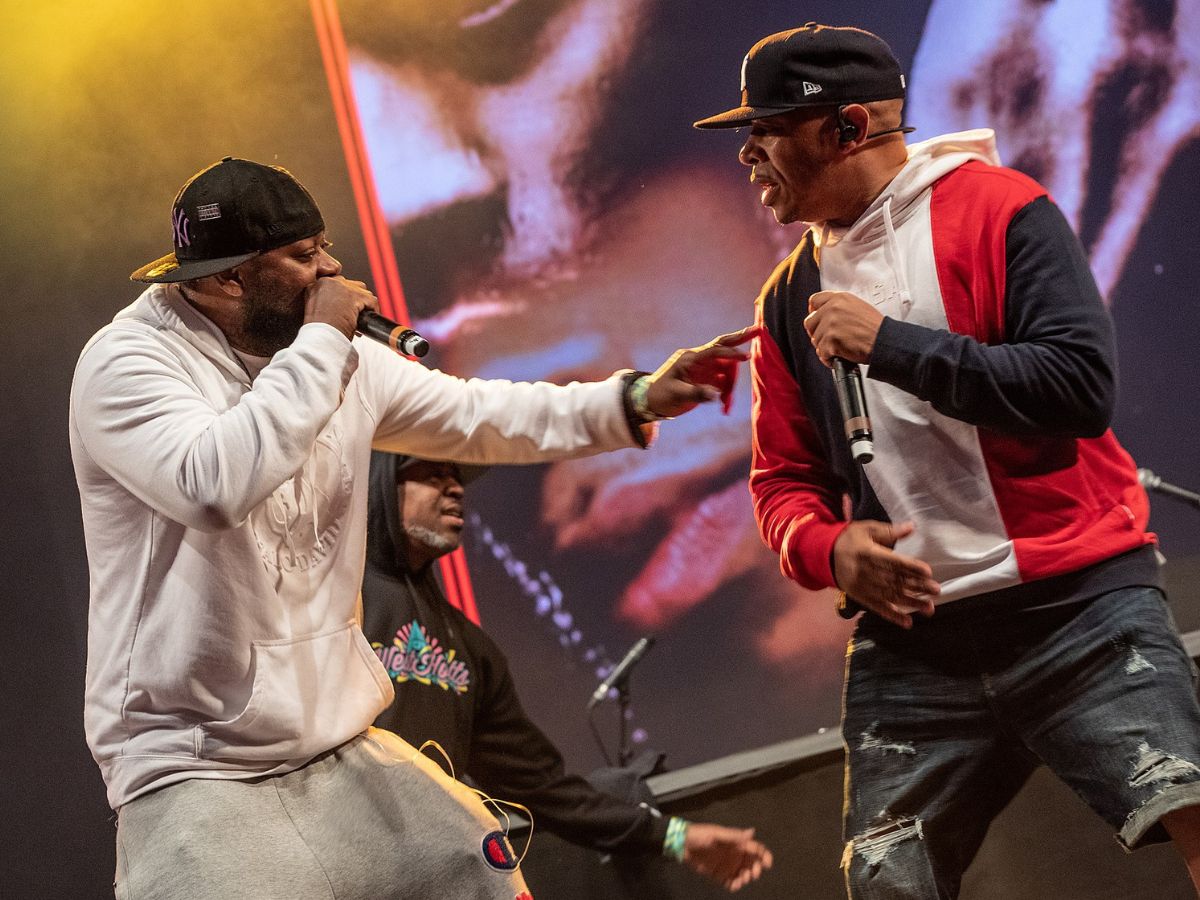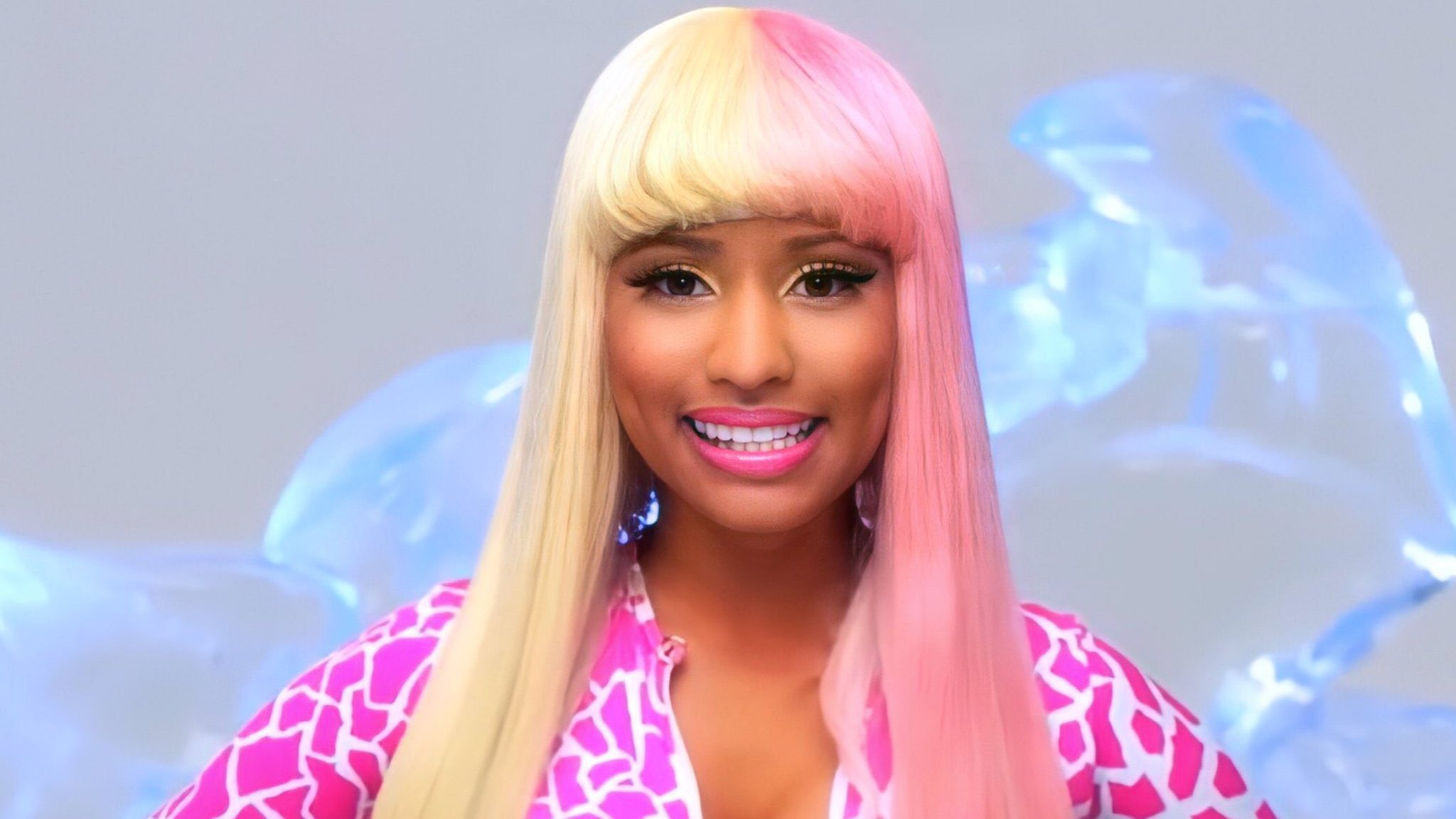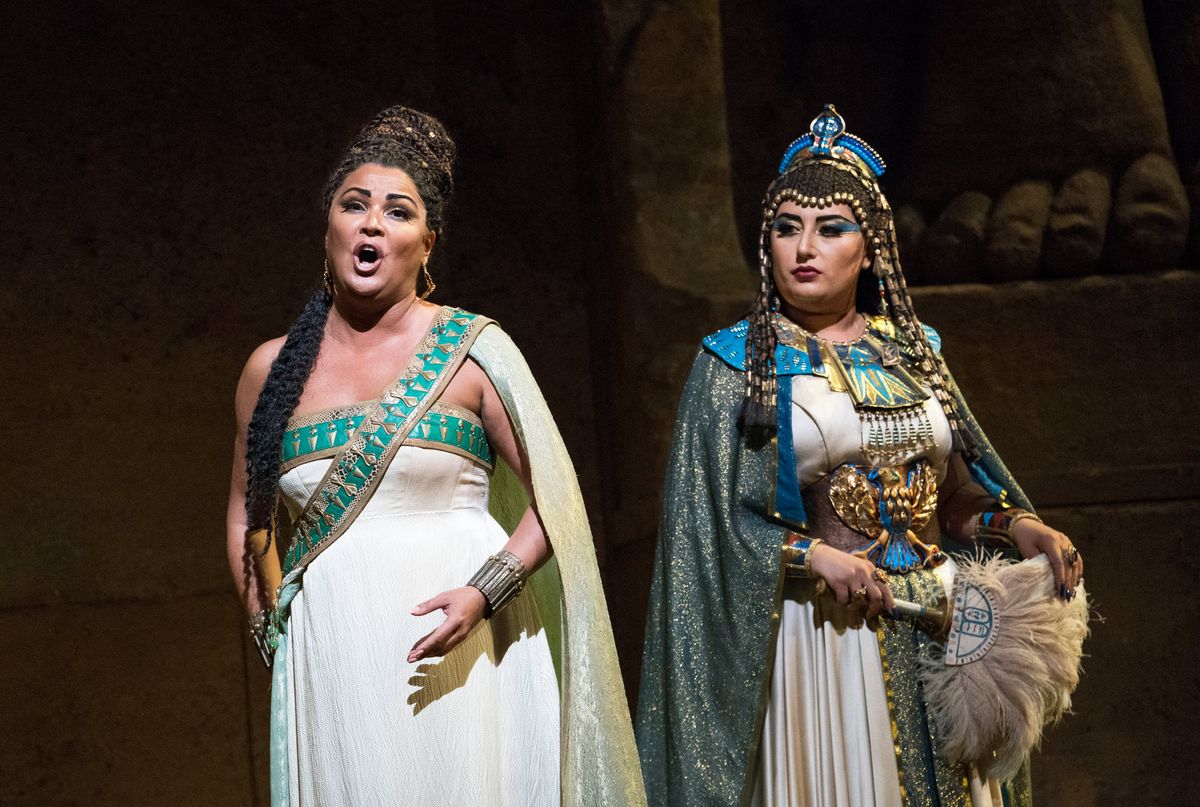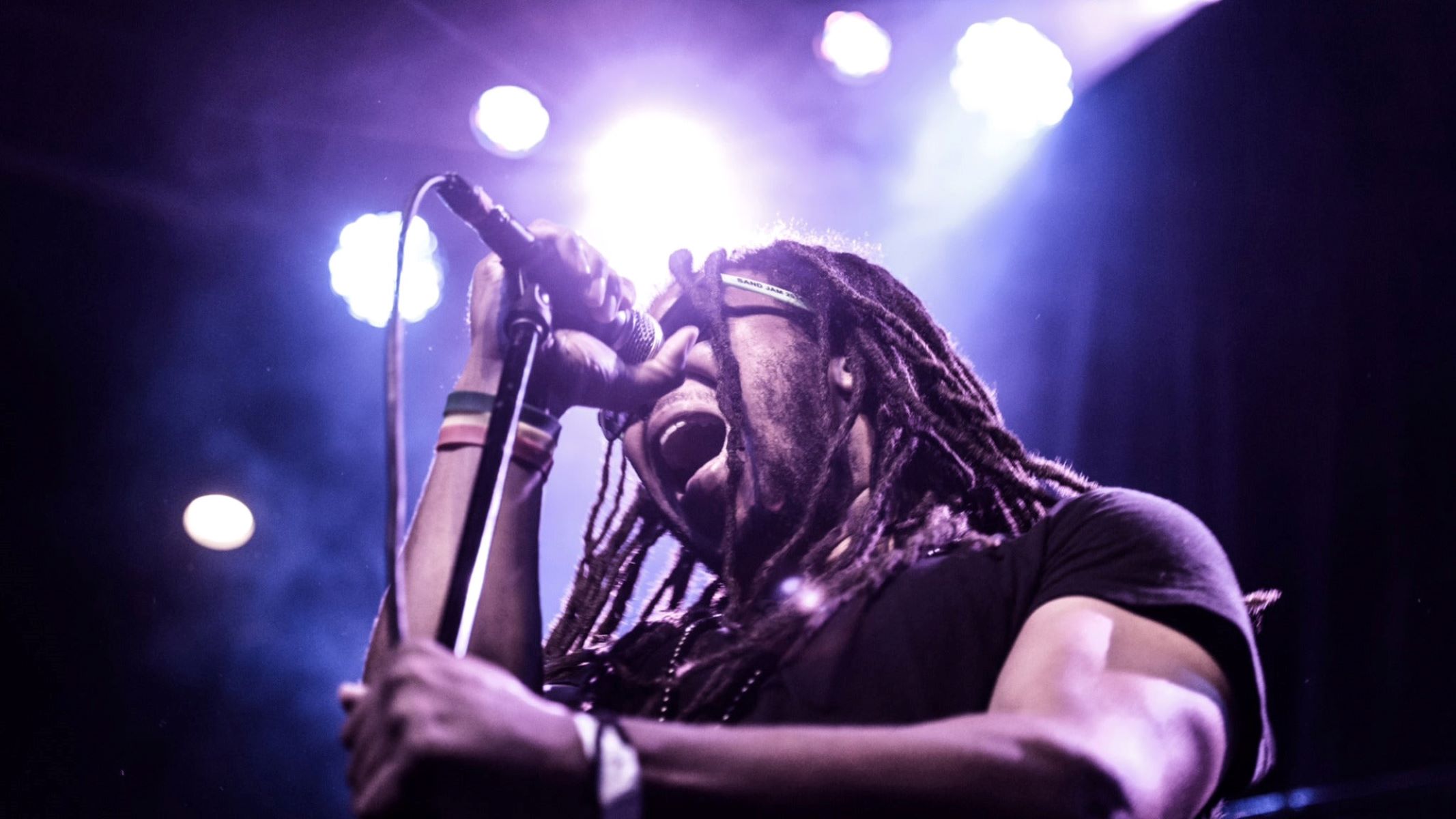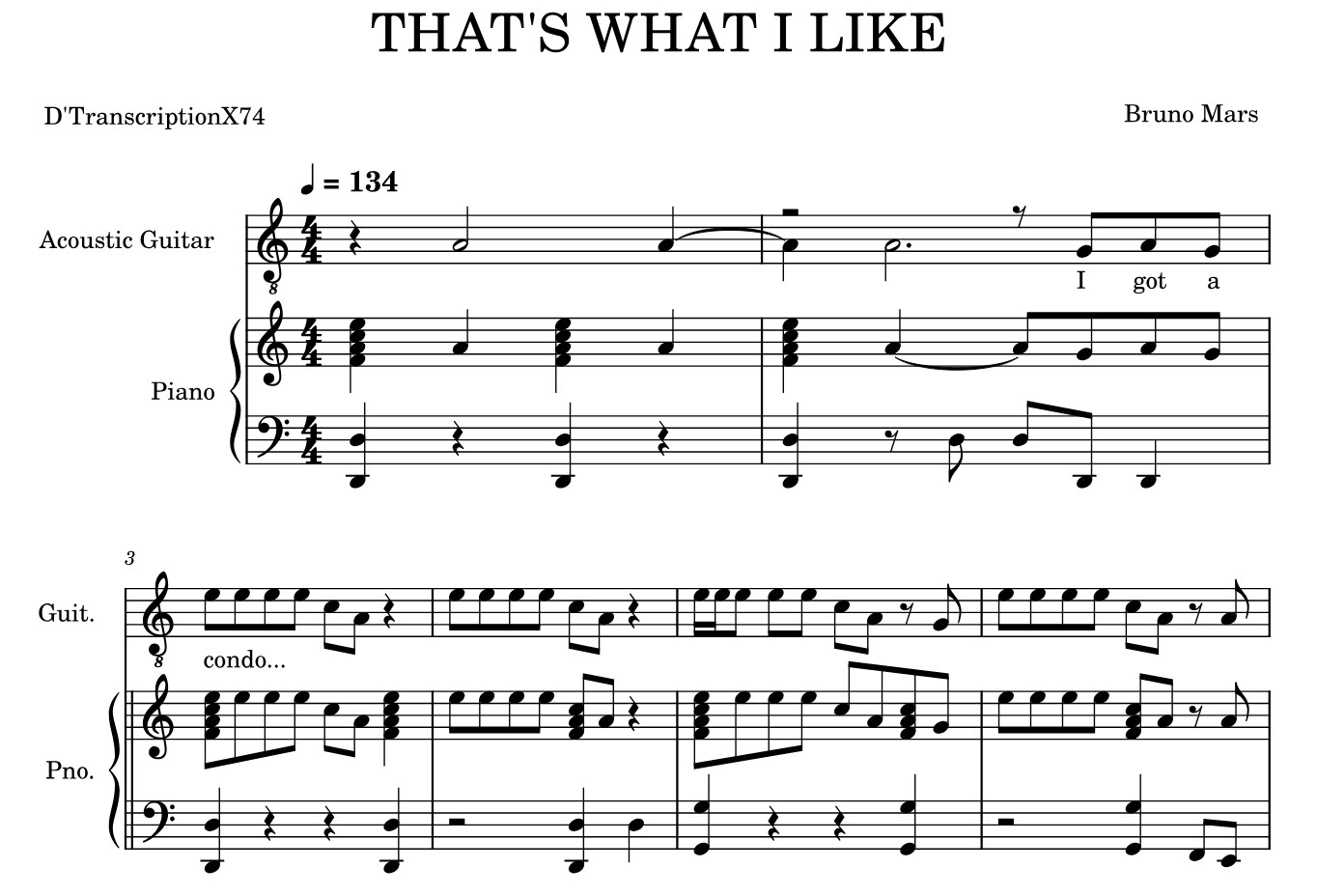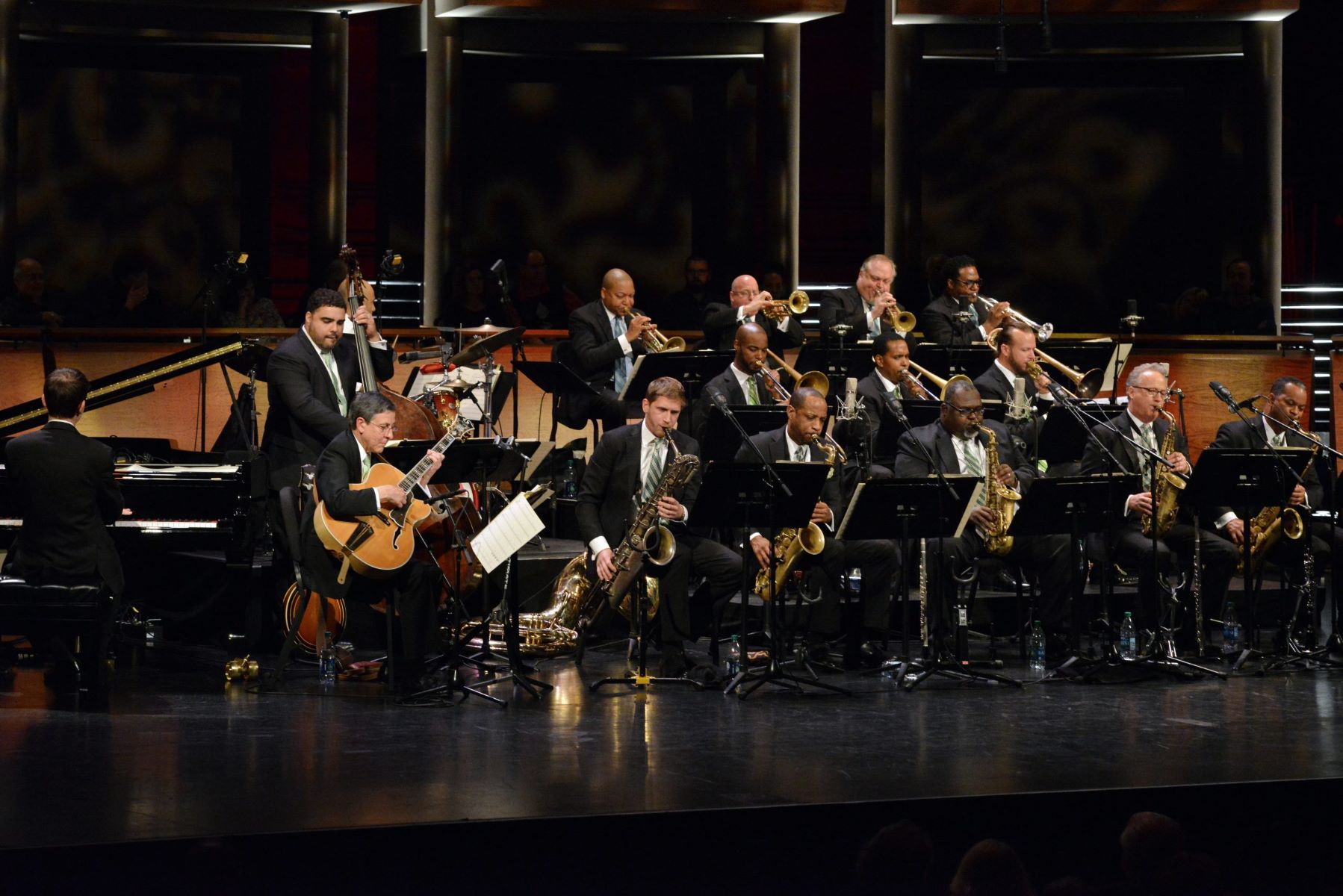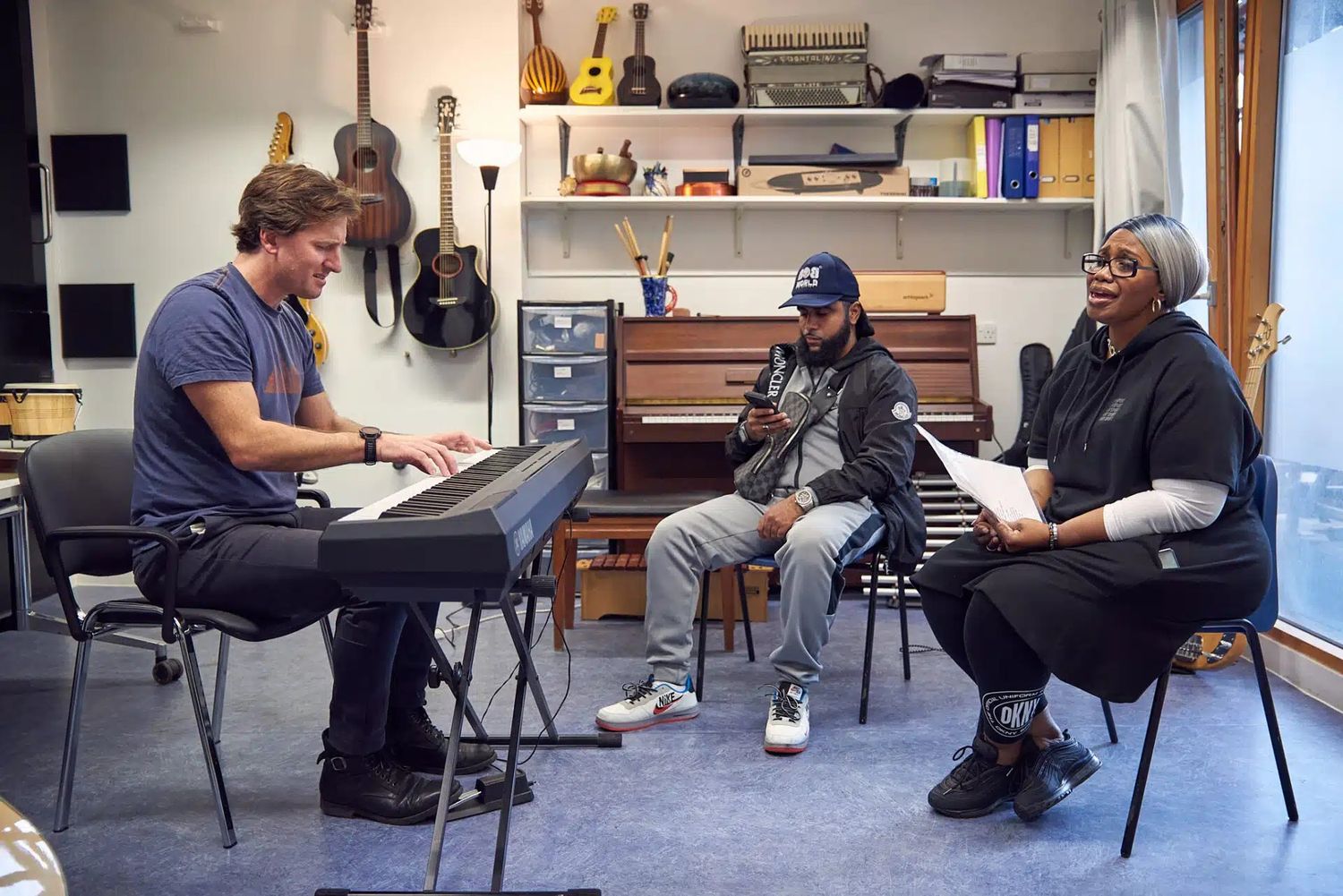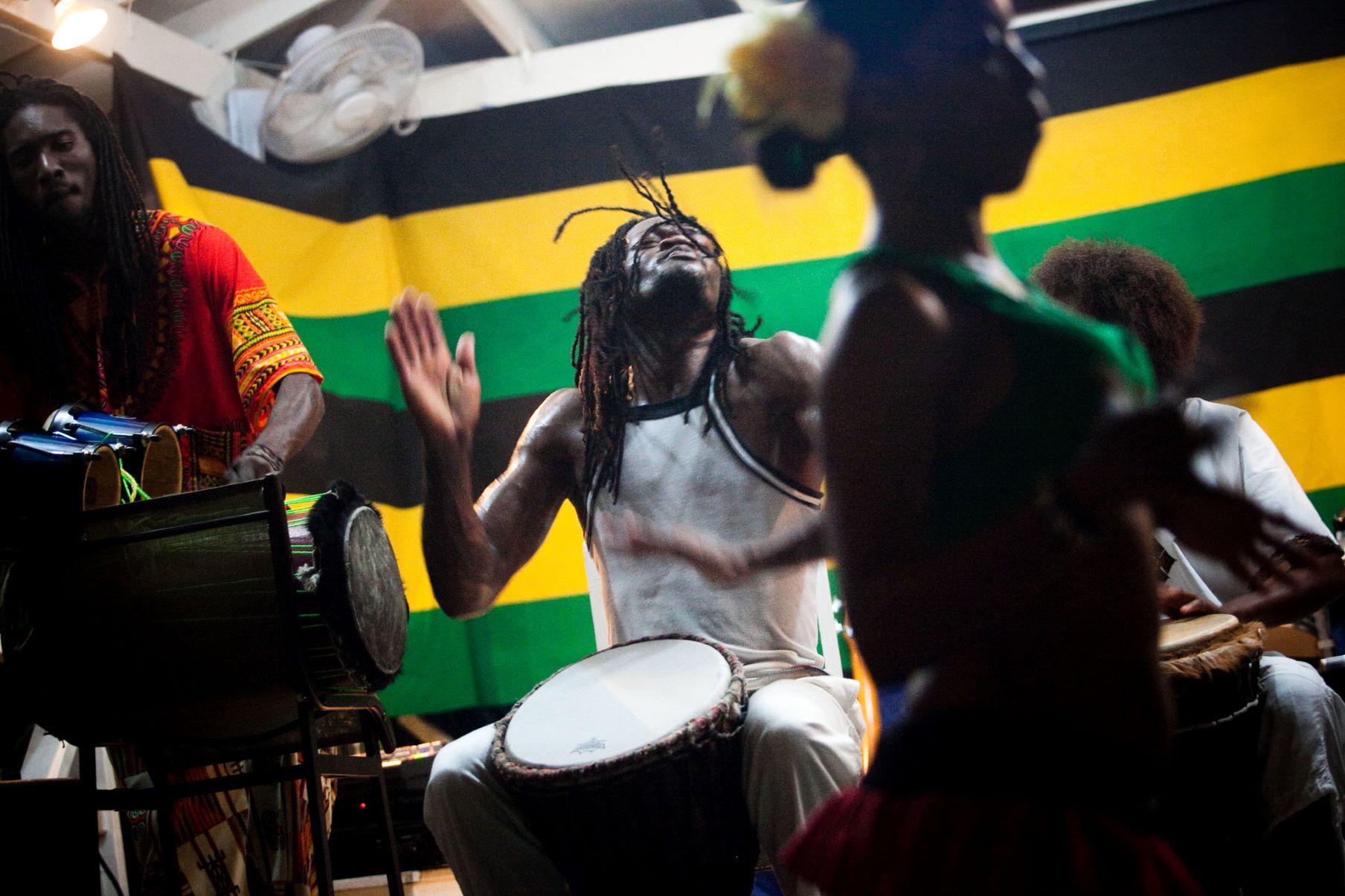

Reggae
What Is Reggae Music About
Modified: January 22, 2024
Discover the essence of Reggae music and its cultural significance. Explore the roots, rhythms, and messages behind this iconic genre.
(Many of the links in this article redirect to a specific reviewed product. Your purchase of these products through affiliate links helps to generate commission for AudioLover.com, at no extra cost. Learn more)
Table of Contents
Introduction
Reggae music is a genre that originated in Jamaica in the late 1960s. It is known for its distinctive rhythm, powerful lyrics, and an uplifting vibe that can instantly transport listeners to a tropical paradise. With its roots deeply embedded in the Jamaican culture, reggae has gained global recognition and has become a musical movement that speaks to people from all walks of life.
Reggae music is not just a genre; it is a form of artistic expression that encompasses a rich history, diverse influences, and a powerful message. It is a fusion of various musical styles, including ska, rocksteady, and mento, and is characterized by its slow tempo, rhythmic emphasis on the off-beat, and the prominent use of bass and drum rhythms.
Reggae’s popularity can be attributed to its ability to resonate with listeners on a deeper level. The music’s laid-back melodies and infectious grooves have a way of captivating audiences and creating a sense of unity and positivity. It has a unique ability to convey powerful messages of love, social justice, and spiritual enlightenment.
Throughout the years, reggae music has evolved and branched out into different sub-genres such as dub, dancehall, and reggae fusion. However, the core essence of reggae remains the same – a powerful voice for the marginalized, a celebration of Jamaican culture, and a message of unity and peace.
In this article, we will explore the origins of reggae music, its influences, key characteristics, the themes it addresses, the social and political commentary in its lyrics, the impact of Rastafarian culture, the popular artists and songs, and its global cultural significance. Join us on this journey as we delve into the enchanting world of reggae music and uncover its deep-rooted significance.
Origins of Reggae Music
The roots of reggae music can be traced back to the vibrant music scene of Jamaica in the 1960s. It emerged as a fusion of various musical genres, including ska, rocksteady, and mento, with influences from African and Caribbean rhythms. The development of reggae was deeply intertwined with the socio-political context of Jamaica at the time.
Ska music, with its lively beats and upbeat tempo, dominated the Jamaican music scene in the early 1960s. However, as the social and political landscape of Jamaica changed, so did the music. The societal unrest and economic challenges faced by the country gave rise to a more reflective and introspective sound.
In the mid-1960s, a slower and more laid-back genre called rocksteady emerged. Rocksteady music featured soulful vocals, melodic basslines, and prominent rhythm guitar. It was during this time that reggae music started to take shape, incorporating elements of rocksteady with a greater emphasis on the bass and drum rhythms.
The term “reggae” was coined by Toots Hibbert, the lead vocalist of the iconic Jamaican band Toots and the Maytals. Their hit song “Do the Reggay” in 1968 popularized the term, which eventually became synonymous with the genre.
Reggae music gained international recognition in the early 1970s through the works of legendary Jamaican artists such as Bob Marley, Peter Tosh, Jimmy Cliff, and Burning Spear. Their music, characterized by profound lyrics that spoke truth to power, propelled reggae onto the global stage and made it an influential force.
The musical style of reggae is distinguished by its rhythmic emphasis on the off-beat, also known as the “skank.” This unique rhythm is achieved through the use of guitar chops on the upstroke, creating a syncopated and infectious groove. The incorporation of heavy basslines, melodic guitar solos, and the mesmerizing sound of the Jamaican drums adds to the distinctiveness of the reggae sound.
It is important to note that reggae music is deeply rooted in the Jamaican cultural and musical traditions. The music often reflects the struggles and triumphs of the Jamaican people, addressing issues such as poverty, social inequality, and the quest for freedom and justice.
Overall, the origins of reggae music can be seen as a reflection of the socio-political climate of Jamaica in the 1960s. It arose as a response to the challenges faced by the country and provided a platform for artists to express their thoughts, emotions, and aspirations through powerful and soul-stirring music.
Influences on Reggae Music
Reggae music is the product of a diverse range of musical influences that have shaped its unique sound. These influences can be traced back to the cultural heritage of Jamaica and the various music genres that emerged throughout its history.
One of the key influences on reggae music is African rhythms and musical traditions. The roots of reggae can be traced back to the African diaspora, with Jamaican music imbued with the rhythms and melodies brought over by enslaved Africans. The use of syncopated beats, call-and-response vocal patterns, and intricate drumming techniques all find their roots in African music traditions.
Another significant influence on reggae is the Jamaican music genre known as mento. Mento music, also known as Jamaican calypso, was a popular form of folk music that emerged in the early 20th century. It blended African and European musical styles, incorporating instruments such as the banjo, guitar, and bamboo flute. Mento’s catchy melodies and humorous lyrics played a role in shaping the rhythmic and melodic aspects of reggae music.
The influence of American rhythm and blues (R&B) and soul music cannot be overstated. Jamaican musicians were heavily influenced by the sounds coming out of America in the 1950s and ’60s, with artists such as James Brown, Otis Redding, and Sam Cooke making a significant impact. The soulful singing style, emotive lyrics, and catchy melodies of R&B and soul music found a resonance in the hearts of Jamaican musicians who incorporated these elements into their own music.
Another major influence on reggae is the Jamaican music genre known as ska. Ska music emerged in the late 1950s and early ’60s and laid the foundation for the development of reggae. Ska music is characterized by its upbeat tempo, syncopated rhythms, and a blend of Caribbean and African musical styles. It provided the launching pad for reggae, with artists such as The Skatalites and Prince Buster paving the way for the creation of a distinct reggae sound.
Furthermore, reggae was also influenced by the sounds of American rock and psychedelic music. Artists such as Jimi Hendrix and The Doors had a profound impact on reggae musicians, who embraced the experimentation and eclectic nature of these genres. This led to the incorporation of elements of rock and psychedelic music into reggae, resulting in a more expansive and diverse sonic palette.
Overall, reggae music is a rich tapestry of diverse influences. From the African rhythms to the Jamaican folk music, from the soulful sounds of R&B to the energetic ska beats, reggae has drawn from a wide range of musical traditions to create its own unique and captivating sound. The blending of these influences has given reggae its distinctive character and made it a genre that transcends boundaries and resonates with audiences around the world.
Key Characteristics of Reggae Music
Reggae music is characterized by a distinctive set of key characteristics that make it instantly recognizable and captivating. From its rhythmic groove to its powerful lyrics, these elements combine to create the unique and infectious sound of reggae.
One of the most prominent characteristics of reggae music is its rhythmic emphasis on the off-beat, known as the “skank.” The guitar chops on the upstroke and the syncopated basslines create a distinct rhythmic pattern that gives reggae its infectious groove. This off-beat rhythm provides a laid-back, relaxed feel to the music, inviting listeners to sway and move to the music.
The prominent use of bass in reggae music is another key characteristic. The heavy, deep basslines drive the rhythm and define the backbone of the music. The bass serves as an anchor, providing a solid foundation and adding a richness and depth to the overall sound.
Reggae music is also characterized by its melodic guitar solos. The guitar in reggae often takes on a melodic role, weaving intricate and soulful solos throughout the songs. These solos add a touch of musicality and emotion, complementing the rhythm and enhancing the overall listening experience.
The use of the Jamaican drums, such as the snare drum, hi-hat, and kick drum, is an essential component of reggae music. The drums provide the driving force behind the rhythm, creating a hypnotic and irresistible beat. The rhythmic interplay between the various drums adds depth and complexity to the music.
Lyrically, reggae music is known for its powerful and meaningful messages. The lyrics often touch upon themes of social justice, love, spirituality, and the struggles of everyday life. Reggae songs serve as a platform for artists to express their thoughts, convey messages of unity, and address pressing societal issues.
The vocal style in reggae music is characterized by soulful and emotive singing. Whether it’s the smooth crooning of Bob Marley or the gritty, impassioned vocals of Peter Tosh, reggae singers have a unique ability to convey emotion and connect with listeners on a profound level.
Instrumentation in reggae music often includes additional instruments such as keyboards, horns, and percussion, adding layers of texture and depth to the sound. These instruments contribute to the overall richness and complexity of the music, creating a captivating sonic experience.
Overall, the key characteristics of reggae music – the off-beat rhythm, the heavy basslines, the melodic guitar solos, the powerful lyrics, the soulful vocals, and the use of drums and additional instruments – all come together to create a genre that is instantly recognizable and deeply resonates with listeners. It’s a music that has the power to transport, uplift, and unite people from all walks of life.
Themes in Reggae Music
Reggae music is known for its powerful and thought-provoking lyrics, addressing a wide range of themes that resonate with listeners around the world. From social and political issues to love, spirituality, and personal empowerment, reggae songs serve as a platform for artists to express their thoughts, share their experiences, and inspire change.
One prominent theme in reggae music is social justice and equality. Many reggae songs highlight the struggles faced by marginalized communities, advocating for equal rights, and urging for societal change. These songs address issues such as poverty, racism, discrimination, and economic inequality, shedding light on the injustices experienced by individuals and communities.
Another recurring theme in reggae music is the celebration of Jamaican culture and identity. Reggae artists often express a deep sense of pride in their Jamaican heritage, paying homage to the country’s rich history, unique traditions, and vibrant spirit. These songs serve as a form of cultural preservation, ensuring that Jamaican culture is celebrated and cherished.
Love is also a central theme in reggae music. From romantic ballads to songs of self-love and universal love, reggae artists explore the complexities and power of love in all its forms. These songs often emphasize the importance of love as a force for unity, healing, and personal growth.
Spirituality and Rastafarian beliefs are deeply intertwined with reggae music. Many reggae artists incorporate religious and spiritual elements into their lyrics, drawing inspiration from Rastafarianism and its principles. Songs rooted in spirituality address themes such as faith, spirituality, liberation, and the search for inner peace and enlightenment.
Resilience and determination are recurring themes in reggae music. Many songs convey messages of hope, encouraging listeners to persevere through adversity, overcome challenges, and remain steadfast in their pursuit of a better future. These songs provide a source of inspiration and motivation to face life’s obstacles head-on.
Additionally, reggae music often explores themes of unity and togetherness. In a world plagued by divisions, reggae songs advocate for unity among people of different races, cultures, and backgrounds. They emphasize the idea that we are all connected and that by coming together, we can create a better and more harmonious world.
Overall, the themes in reggae music reflect the socio-political realities, cultural identity, and spiritual beliefs of the artists. Through their lyrics, reggae musicians use their platform to raise awareness, inspire change, and uplift individuals and communities. It is this combination of powerful messages and infectious rhythms that has made reggae a music genre that transcends boundaries and resonates with people from all walks of life.
Social and Political Commentary in Reggae Lyrics
Reggae music is renowned for its powerful and poignant social and political commentary. Through their lyrics, reggae artists have consistently used their platform to shed light on pressing societal issues and advocate for change. The genre has become a voice for the marginalized, a means to challenge the status quo, and a platform for expressing the hopes, frustrations, and aspirations of communities around the world.
One of the central themes in reggae lyrics is the call for social justice and equality. Reggae songs often address the experiences of the oppressed and marginalized, highlighting the systemic injustices and inequalities they face. Artists like Bob Marley, Peter Tosh, and Jimmy Cliff have used their music to advocate for equal rights, condemn discrimination, and demand fair treatment for all individuals, regardless of their race, gender, or socio-economic status.
Political commentary is also prevalent in reggae lyrics. Many reggae songs serve as a scathing critique of corrupt political systems, exposing the abuses of power and calling for a more transparent and accountable governance. These songs challenge the authority and question the decisions of political leaders, urging listeners to question, analyze, and participate in the shaping of their own societies.
Reggae artists have also used their music to address issues such as poverty, economic inequality, and the struggle for economic empowerment. They shed light on the daily hardships faced by individuals living in impoverished communities and call for economic reforms that uplift and empower the less fortunate. Through their lyrics, they champion the idea that economic prosperity should be accessible to all and advocate for a more equitable distribution of wealth.
Reggae lyrics often tackle themes of violence, crime, and gang culture, reflecting the harsh realities of many inner-city communities. Artists use their music as a platform to denounce violence and promote peace as an alternative. They address the root causes of violence, such as poverty and lack of opportunities, and emphasize the need for education, unity, and understanding to break the cycle of violence.
Environmental consciousness is another prevalent theme in reggae lyrics. Many reggae artists express concern for the environment, advocating for sustainable practices, and decrying the exploitation of natural resources. They highlight the interconnectedness between humans and nature, urging listeners to be mindful of their impact on the planet and take action to protect and preserve it for future generations.
Overall, reggae lyrics serve as a powerful vehicle for social and political commentary. They challenge listeners to critically examine the world around them, question existing power structures, and strive for a more just and equitable society. Through their music, reggae artists have created a legacy of activism, inspiring generations with their messages of love, unity, and the relentless pursuit of social and political change.
Rastafarian Culture and Reggae Music
Rastafarian culture has played a significant role in the development and evolution of reggae music. Originating in Jamaica during the early 20th century, Rastafarianism is a spiritual and cultural movement that combines elements of Christianity, Pan-Africanism, and Afrocentric beliefs. The philosophy of Rastafarianism has deeply influenced reggae music, shaping its lyrics, symbolism, and overall message.
One of the key aspects of Rastafarian culture in reggae music is the emphasis on spirituality and faith. Rastafarians believe in the divinity of Haile Selassie I, the former emperor of Ethiopia. They see him as a sacred figure, the messiah, and the embodiment of their African roots. Many reggae songs incorporate references to Jah (God) and celebrate the spiritual connection between humanity and the divine. The music serves as a platform for expressions of faith, worship, and praise.
Rastafarian culture also centers around the concept of “One Love” and unity. This belief is reflected in many reggae lyrics, emphasizing the importance of love, compassion, and understanding among all people. The music encourages listeners to embrace unity, reject divisions based on race or social class, and work towards a harmonious coexistence.
The imagery and symbolism associated with Rastafarian culture are prevalent in reggae music. The iconic imagery of the lion, often representing Haile Selassie I, is frequently depicted in album covers, artwork, and stage performances. The colors red, gold, and green, which symbolize the blood of the martyrs, the wealth of Africa, and the vegetation of the homeland respectively, are also prominently featured in reggae symbolism.
Rastafarian culture’s commitment to social justice and resistance against oppression is mirrored in reggae music. Many songs address societal issues such as poverty, inequality, discrimination, and the struggle for freedom. Reggae artists use their music to amplify the voices of the marginalized, advocating for equal rights, and railing against systems of injustice.
Moreover, the Rastafarian influence can be seen in reggae’s connection to nature and the environment. Rastafarians hold a deep reverence for nature, viewing it as sacred and integral to their way of life. Reggae lyrics often express a concern for the environment, calling for its protection, and emphasizing the need for sustainable practices in order to preserve the Earth for future generations.
It is important to note that not all reggae musicians are adherents of Rastafarianism. However, the influence of Rastafarian culture in reggae music is profound and has played a significant role in shaping its themes, symbols, and spirituality. The fusion of Rastafarian beliefs with the rhythmic and melodic elements of reggae has created a unique musical genre that serves as a voice for social change, spiritual enlightenment, and cultural celebration.
Popular Reggae Artists and Songs
Reggae music has seen the rise of numerous talented artists who have made a significant impact on the genre and garnered global recognition. These artists have captivated audiences with their powerful voices, infectious rhythms, and thought-provoking lyrics. Here are some of the most popular reggae artists and their iconic songs:
- Bob Marley – Arguably the most iconic reggae artist of all time, Bob Marley’s music transcends generations and borders. Songs like “One Love,” “No Woman, No Cry,” and “Redemption Song” have become anthems of love, unity, and social justice.
- Peter Tosh – A founding member of The Wailers alongside Bob Marley and Bunny Wailer, Peter Tosh was known for his fearless political commentary. Songs like “Legalize It” and “Equal Rights” tackled issues of marijuana legalization and fought for equal rights for all.
- Jimmy Cliff – Jimmy Cliff’s powerful vocals and uplifting melodies brought reggae to international acclaim. His song “Many Rivers to Cross” became a symbol of resilience, while “The Harder They Come” served as a social commentary on the struggles of the underprivileged.
- Burning Spear – Winston Rodney, better known as Burning Spear, is known for his conscious and spiritually inspired lyrics. Songs such as “Marcus Garvey” and “Slavery Days” celebrate African heritage, advocate for black liberation, and highlight the struggles of the African diaspora.
- Toots and the Maytals – With their energetic and soulful sound, Toots and the Maytals brought reggae to the forefront. Their song “Pressure Drop” is considered a reggae classic, while “54-46 That’s My Number” explores lead vocalist Toots Hibbert’s personal experiences with imprisonment.
- UB40 – A British reggae band, UB40 enjoyed massive popularity in the 1980s with their fusion of reggae and pop. Songs like “Red Red Wine” and “Kingston Town” became international hits, bringing reggae to a wider audience.
- Black Uhuru – Known for their smooth harmonies and political lyrics, Black Uhuru made a name for themselves in the reggae scene. Their song “Guess Who’s Coming to Dinner” addressed racial tensions and discrimination while highlighting the need for unity.
These are just a few examples of the many talented reggae artists who have shaped the genre. Their music has provided a voice for the marginalized, brought awareness to social issues, and created a sense of unity and love among people worldwide. Through their iconic songs, these artists have left an indelible mark on the history of reggae music.
Impact of Reggae Music on Global Culture
Reggae music has had a profound impact on global culture, transcending boundaries and resonating with people from all walks of life. Its infectious rhythms, powerful lyrics, and message of love, unity, and social justice have made it more than just a genre of music – it has become a cultural movement. Here are some of the ways in which reggae music has influenced and shaped global culture:
Unifying Force: Reggae’s universal appeal has brought people together, regardless of their cultural or geographical backgrounds. The music’s emphasis on unity, love, and social justice has fostered a sense of connection and understanding among people worldwide.
Influencing Other Genres: Reggae’s influence can be heard in various music genres, including hip-hop, electronic, and pop. Artists from different genres have incorporated reggae elements into their music, from rhythmic patterns to vocal styles, contributing to its widespread influence and recognition.
Social and Political Activism: Reggae music has been a powerful tool for social and political activism. Artists have used their lyrics to address issues such as poverty, racism, inequality, and political oppression. The music has inspired movements for change and provided a voice for the marginalized.
Fashion and Style: Reggae’s influence extends beyond music to fashion and style. The vibrant colors, bold patterns, and relaxed fashion associated with reggae culture have permeated global fashion trends, influencing designers and fashion enthusiasts alike.
Art and Visual Expression: Reggae’s visual aesthetic, with its vibrant album covers, iconic symbols, and imagery, has inspired artists and designers around the world. From street art to fashion design, reggae’s influence is evident in various forms of visual expression.
Tourism and Cultural Exchange: Reggae’s global popularity has contributed to the growth of tourism in Jamaica and other reggae hubs. People from around the world travel to experience the culture, music festivals, and immerse themselves in the reggae lifestyle, fostering cultural exchange and understanding.
Positive Messaging: Reggae’s uplifting and positive messages have provided solace, inspiration, and motivation to countless individuals. The music’s emphasis on love, peace, and resilience has become a guiding light for many, promoting personal growth and social change.
Rastafarian Influence: Reggae music has brought awareness to Rastafarian culture and its principles. The philosophy of Rastafarianism, with its focus on spirituality, social justice, and African heritage, has resonated with individuals searching for meaning and a sense of identity.
In summary, reggae music has left an indelible mark on global culture. Its powerful messages, infectious rhythms, and unifying spirit have influenced not only the music industry but also fashion, art, social movements, and individual lives. Reggae’s ability to speak to the struggles, hopes, and dreams of people from diverse backgrounds has solidified its place as a cultural phenomenon that continues to impact and inspire generations.
Conclusion
Reggae music is more than just a genre; it is a cultural movement that has captivated audiences around the world. With its roots deeply embedded in Jamaican history and culture, reggae has evolved into a powerful form of artistic expression, addressing social, political, and spiritual issues. Its infectious rhythms, soul-stirring melodies, and thought-provoking lyrics have made it a genre that resonates with people from all walks of life.
From its origins in the Jamaican music scene of the 1960s to its global recognition today, reggae music has influenced and shaped global culture in various ways. Its impact extends beyond the realms of music, influencing fashion, visual arts, social movements, and individual lives. The genre’s emphasis on love, unity, and social justice has fostered a sense of community and provided a voice for the marginalized.
Reggae music’s rich history, diverse influences, and themes of social commentary have made it a vehicle for change and empowerment. Artists like Bob Marley, Peter Tosh, and Jimmy Cliff have used their lyrics to challenge the status quo, advocate for equality, and inspire generations with their messages of love and resilience. The Rastafarian influence has brought spirituality, African heritage, and unity to the forefront of reggae culture.
As reggae continues to evolve and branch out into new sub-genres and fusions, its core essence remains the same – a powerful voice for the voiceless, a celebration of Jamaican culture, and a message of unity and peace. The impact of reggae music on global culture is undeniable, transcending borders and inspiring individuals to create positive change in their communities and the world.
In conclusion, reggae music has not only created an enchanting and infectious sound but has also become a driving force for social consciousness, cultural pride, and unity. It continues to be cherished and celebrated as a powerful expression of the human spirit, providing solace, inspiration, and a sense of belonging to people around the globe.


